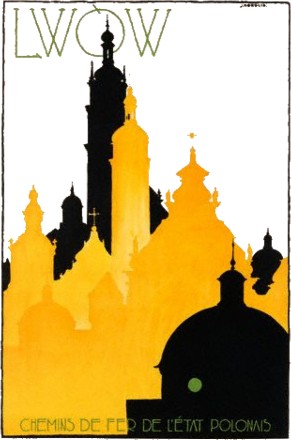Ukraine
About Andrew Cusack
 Writer, web designer, etc.; born in New York; educated in Argentina, Scotland, and South Africa; now based in London.
Writer, web designer, etc.; born in New York; educated in Argentina, Scotland, and South Africa; now based in London. read more
News
Blogs
Reviews & Periodicals
Arts & Design
World
France
Mitteleuropa
Knickerbockers
Argentina
The Levant
Africa
Cape of Good Hope
Netherlands
Scandinavia
Québec
India
Muscovy
Germany
Academica
The Ukrainians’ Secret Weapon
For those looking for an explanation as to the notable success of the Ukrainians on the battlefield in the current unpleasantness taking place in their country, look no further.
In a thread of tweets, the biblophile Incunabula reveals the Ukraine’s secret weapon: the Peresopnytsia Gospels (Пересопницьке Євангеліє).
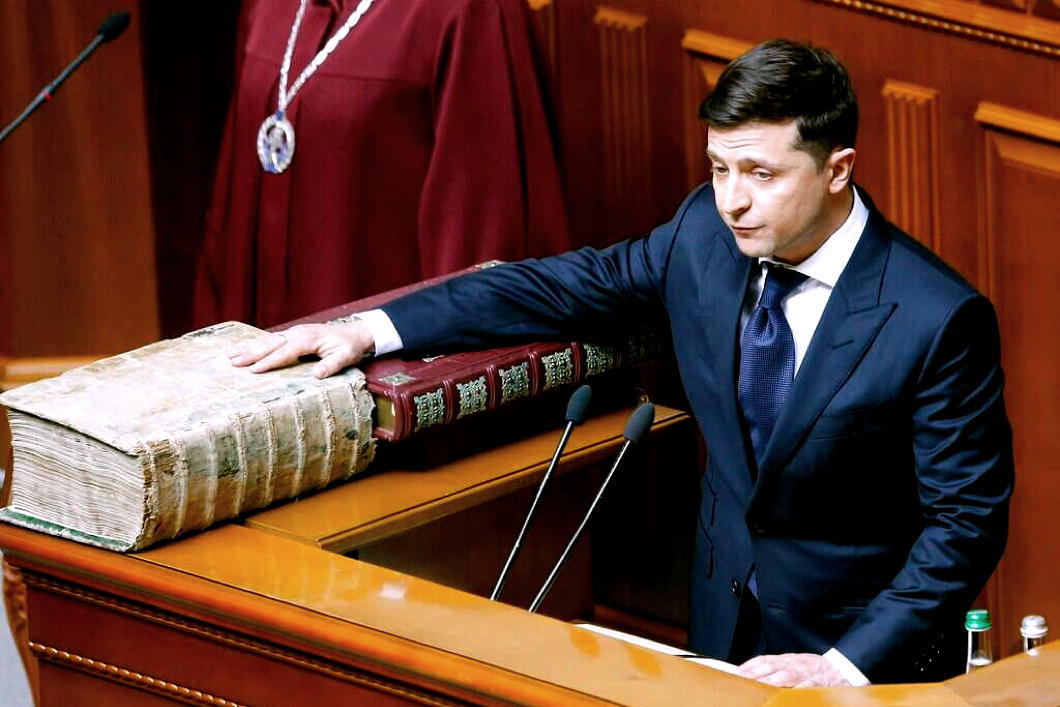
“All six Ukrainian Presidents since 1991,” Incunabula writes, “including Volodymyr Zelensky, have taken the oath of office on this book: the sixteenth-century Peresopnytsia Gospels, one of the most remarkably illuminated of all surviving East Slavic manuscripts.”
“The Peresopnytsia Gospels were written between 15 August 1556 and 29 August 1561, at the Monastery of the Holy Trinity in Iziaslav, and the Monastery of the Mother of God in Peresopnytsia, Volyn.”
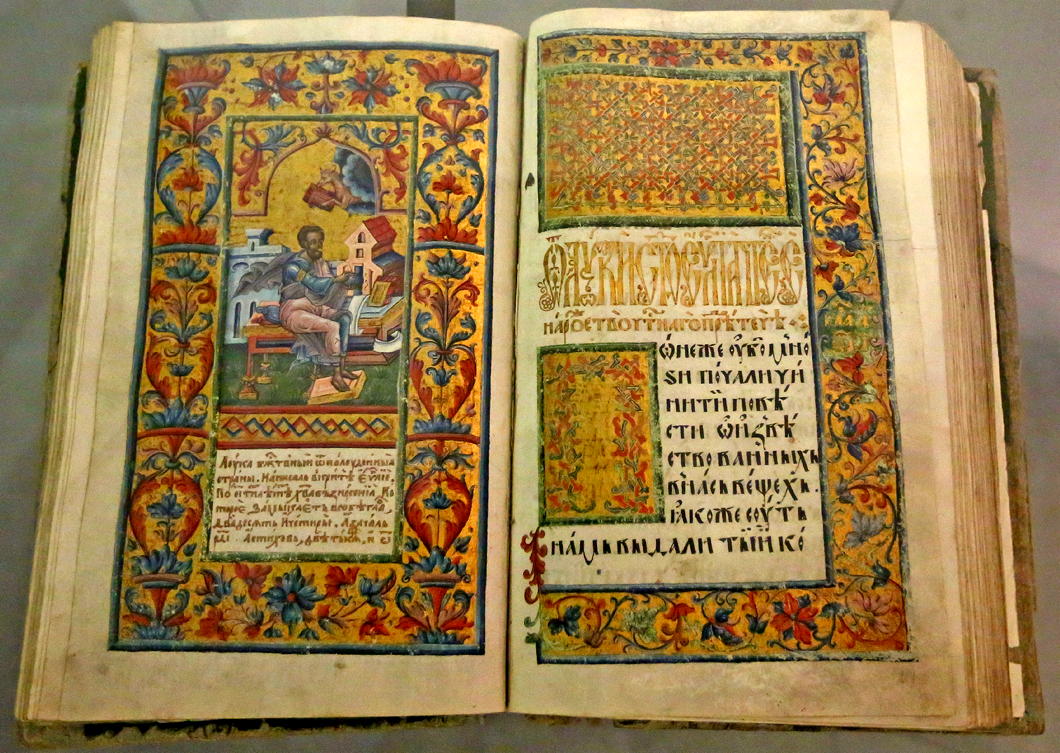
“This manuscript is the earliest complete surviving example of a vernacular Old Ukrainian translation of the Gospels. Its richly ornamented miniatures belong to the very highest achievements of the artistic tradition of the Ukrainian and Eastern Slavonic icon school.”
“The Peresopnytsya Gospels were commissioned in 1556 by Princess Nastacia Yuriyivna Zheslavska-Holshanska of Volyn, and her daughter and her son-in-law, Yevdokiya and Ivan Fedorovych Czartoryski. After its completion the book was kept in the Peresopnytsya Monastery.” (more…)
Articles of Note: 3.II.2022
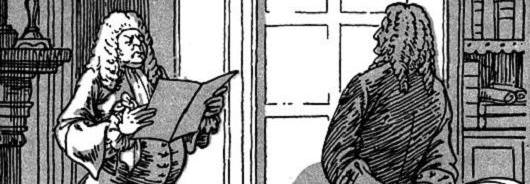
“Lebanese money was worth more and there was more to eat when militias were fighting each other in the streets of Beirut 40 years ago than there is today.”
One of the great ironies of Lebanon’s current decline (Fernandez points out) is that, as destructive as the Civil War was, the country’s hopes were finally crushed by bankers and politicians rather than warlords.
— A bumper from The European Conservative: Tim Stanley says “Stay away from politics!” (I couldn’t agree less: we need brighter people involved!)
■ Idealists in Europe refusing to bow to reality have provided false hope to countries that have no real prospect of becoming members of NATO or the EU.
Damir Marusic muses on the Ukraine in How Not to Bend the Arc of History.
■ I ran into my friend João at a dinner party last night and he described the very existence of Brazil as “the greatest thing Portugal ever did”.
In 2018, Americas Quarterly claimed the now-deceased Olavo de Carvalho was the most important voice in Brazil’s then-incoming government (even though he didn’t live there).
More bizarrely fascinating is Nick Burns’s 2019 article on Bruno Tolentino, Carvalho, Ernesto Araújo, and the origins of the new Brazilian right.
Brazil’s foreign minister “penned an eyebrow-raising article for Bloomberg in which he blamed Ludwig Wittgenstein for Brazil’s debility on the world stage”.
If you’ve never lived in Latin America (I claim to have been at least partly educated there) you will never really understand quite how different it is.
■ When Algeria became independent, President Ben Bella had spent so long in French prisons that he had almost forgotten his Arabic.
One million French Algerians left within months, as American diplomats in Paris and Algiers at the time recall.
French Algerians “not only controlled the whole private sector, they had all the top government positions, and more importantly, they filled all the minor positions. The guy who read the gas meter in the utility company was a Frenchman. The women who worked the switchboard in the telephone company were all French. So the economy just came to a screeching halt.”
— Ex Africa semper aliquid novi: A new documentary (watchable online) explores Algeria under Vichy while another looks at Jacques Foccart, de Gaulle’s “Mister Africa”.
■ I am not much of a “Substack” aficionado, but I have recently given in and signed up to receive The Postliberal Order in my inbox. It’s penned by the quadrivirate of Vermeule, Deneen, Pappin, and Pecknold — all of whom have become household names in Cusackistan.
Patrick Deneen’s latest contribution on emerging postliberalism amidst the political persuasions of his students is worth a read.
Universitas Catholica Ucrainorum, Leopolis
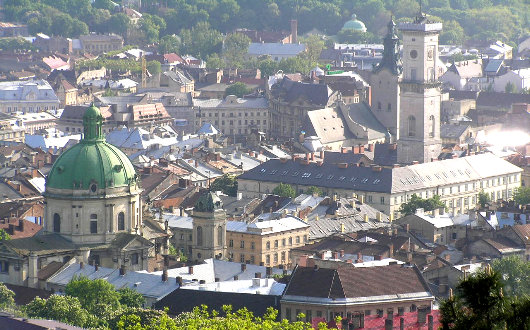
Lviv — sometimes called Lemberg, Lwów, or Leopolis — sits in one of those corners of Europe that has born tremendous witness to the unfolding of history over the centuries. It was founded in the fourth century, built by the Poles, besieged by the Turks, ceded to the Austrians, regained by the Poles, captured by the Nazis, subjugated by the Soviets, and finally freed under an independent Ukraine. Lviv is the capital of Carpathia… and Galicia… not to mention Ruthenia, and nobody can quite define the difference between those three places, while some even argue that one or another (or all) don’t actually exist. For now, we can say with authority that Lviv is the most prominent city in the western Ukraine, and has for centuries been an important place of Catholic culture.
As Damian Thompson points out, Lviv is now home to the Ukrainian Catholic University (Український Католицький Університет). “You must look into this place,” Edward Lucas of the Economist told Damian Thompson: “It’s quite amazing.” (more…)
Search
Instagram: @andcusack
Click here for my Instagram photos.Most Recent Posts
- Bicycle Rack April 29, 2024
- Burns Tower April 19, 2024
- Patrick in Parliament March 18, 2024
- Articles of Note: 13 March 2024 March 13, 2024
- Cambridge March 9, 2024
Most Recent Comments
Book Wishlist
Monthly Archives
Categories

